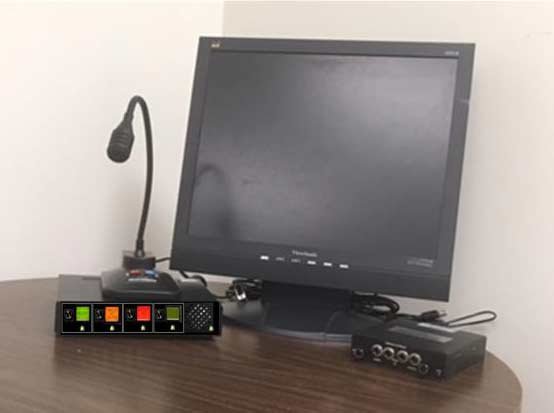Why Radios Still Matter for Certain Businesses

In an age where smartphones dominate personal and professional communication, many commercial organizations still rely on radio systems to support their daily operations. While it might seem outdated, the reality is quite the opposite—today’s radio systems are more advanced than ever, powered by digital transformation and enhanced by IP (Internet Protocol) connectivity. This evolution has made radios an indispensable part of modern secure communication systems, especially in industries that require instant, reliable, and resilient communication.
Why Radios Over Cell Phones?
Cellular networks are great for consumer use, but they fall short in mission-critical situations. Five types of organizations that greatly benefit from using radios over cellular connections include:
Public Safety and Emergency Services – Fire departments, police forces, and EMS teams depend on instant communication that works in tunnels, during disasters, or in remote areas where cell coverage is unreliable.
Construction and Infrastructure – Job sites often have patchy cell reception and require rugged, push-to-talk systems that work in noisy environments.
Transportation and Logistics – Fleet managers, dispatchers, and drivers rely on continuous updates and coordination across wide geographical areas.
Hospitality and Events – Coordinating large teams in real-time across venues, from hotels to concerts, requires communication that’s fast, clear, and uninterrupted.
Utilities and Energy Companies – These sectors need to maintain service uptime and safety, especially in remote substations or offshore facilities where conventional networks don’t reach.
For these industries, two-way radios are often the lifeline of operations. But these aren’t the same static analog radios of decades past.
The Rise of IP Radio Systems
Modern radio solutions have evolved to leverage the power of IP networks, allowing voice and data to travel over existing LANs, WANs, and even the internet. An IP radio system transmits audio and control signals digitally, which improves range, clarity, and reliability. With IP integration, these systems also support remote management, seamless scalability, and better interoperability between devices and locations.
A good example is when a utility company integrates their dispatch system with IP radios connected across substations. Even if the facilities are hundreds of miles apart, they can communicate in real time over the same network, with lower latency and higher clarity than traditional analog or UHF-based systems.
Understanding RoIP Systems
RoIP systems (Radio over Internet Protocol) are an extension of the VoIP (Voice over IP) concept. These systems allow radios to communicate over IP networks by converting audio into data packets. This opens the door to linking multiple sites, enabling nationwide radio coverage without the need for expensive repeater infrastructure or leased lines.
Think of RoIP as an audio bridge between traditional radio devices and the internet. A construction company can, for example, connect different job sites across the state by using RoIP gateways, allowing supervisors and operators to coordinate without relying on cellular networks, which may falter in rural or crowded environments.
Transitioning from Analog to Digital Radio
Many companies hesitate to upgrade from legacy analog systems, fearing cost or complexity. However, transitioning to digital radio communications is easier than most expect. Modern communication systems companies in the USA offer hybrid devices and infrastructures that support both analog and digital modes. This allows organizations to phase in digital capabilities over time without disrupting operations.
By switching to digital, businesses gain access to features like enhanced audio quality, text messaging, GPS tracking, and programmable emergency alerts. These capabilities improve both safety and efficiency across departments.
Ensuring Security Through Encryption
Security is a top concern for any business, especially those managing critical infrastructure or sensitive information. Digital radio systems provide built-in encryption options that protect communications from interception.
There are several encryption standards available:
Basic digital encryption – Suitable for everyday use to prevent casual eavesdropping.
AES (Advanced Encryption Standard) – A robust encryption method used by military and government agencies.
End-to-end encryption – Ensures that only authorized users can listen in, as even the network cannot decrypt the communication.
By choosing secure communication systems with strong encryption features, businesses can ensure compliance with industry regulations and maintain operational integrity.
Why Work with a Communication Systems Provider?
Choosing the right partner can make all the difference in implementing a radio solution that fits your organization’s needs. A qualified communication systems company in the USA will help assess your operational requirements, design a tailored solution, and handle both the hardware installation and software configuration. This includes programming radio units, setting up IP and RoIP systems, and training your team for optimal use. In addition, working with professionals ensures ongoing technical support, firmware updates, and compliance with FCC regulations—saving time, reducing risk, and improving system uptime.
Despite the ubiquity of smartphones, radios remain a powerful tool for business communication—especially when they’re backed by IP and RoIP technology. By adopting a modern IP radio system, businesses gain access to scalable, secure, and efficient communication networks that are purpose-built for demanding environments.
From construction zones to emergency command centers, today’s secure communication systems are faster, smarter, and more connected than ever. With expert support from a reliable communication systems provider, your business can future-proof its communications with a solution that’s ready for anything.